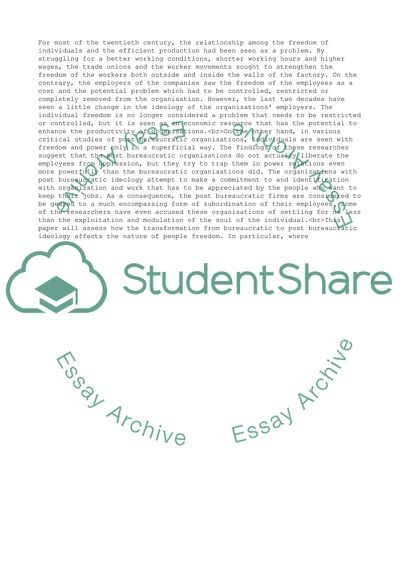Cite this document
(Post bureaucracy does not constitute an advance on bureaucratic forms Essay, n.d.)
Post bureaucracy does not constitute an advance on bureaucratic forms Essay. https://studentshare.org/management/1819715-post-bureaucracy-does-not-constitute-an-advance-on-bureaucratic-forms-of-organisation-do-you-agree-with-this-statement-explain-your-answer-using-theory-and-examples
Post bureaucracy does not constitute an advance on bureaucratic forms Essay. https://studentshare.org/management/1819715-post-bureaucracy-does-not-constitute-an-advance-on-bureaucratic-forms-of-organisation-do-you-agree-with-this-statement-explain-your-answer-using-theory-and-examples
(Post Bureaucracy Does Not Constitute an Advance on Bureaucratic Forms Essay)
Post Bureaucracy Does Not Constitute an Advance on Bureaucratic Forms Essay. https://studentshare.org/management/1819715-post-bureaucracy-does-not-constitute-an-advance-on-bureaucratic-forms-of-organisation-do-you-agree-with-this-statement-explain-your-answer-using-theory-and-examples.
Post Bureaucracy Does Not Constitute an Advance on Bureaucratic Forms Essay. https://studentshare.org/management/1819715-post-bureaucracy-does-not-constitute-an-advance-on-bureaucratic-forms-of-organisation-do-you-agree-with-this-statement-explain-your-answer-using-theory-and-examples.
“Post Bureaucracy Does Not Constitute an Advance on Bureaucratic Forms Essay”. https://studentshare.org/management/1819715-post-bureaucracy-does-not-constitute-an-advance-on-bureaucratic-forms-of-organisation-do-you-agree-with-this-statement-explain-your-answer-using-theory-and-examples.


